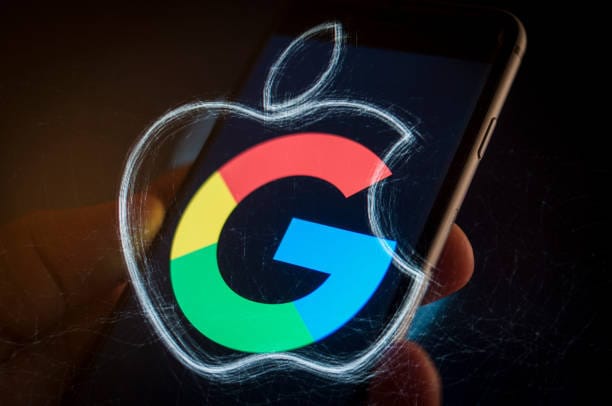Aviation
Recent mishaps have fliers worried — should they be?

AI-Generated Image via Bing Image Generator
Many already deal with nerves when boarding a flight, but recent safety mishaps have some even more worried. A recent series of highly publicized air-related disasters (looking at you Boeing) has made the public uneasy about flying. However, before you swear off hopping on a flying metal tube again, let’s take a look at the statistics and if you really should be concerned.
Why are people worried in the first place?
If you haven’t been watching the news (or reading the newsletter), you’ve probably missed a few notable aviation accidents.
To begin the year, five people died in Japan due to a runway collision after a Coast Guard plane was hit by a Japan Airlines commercial aircraft. Soon after (the same week), passengers on an Alaska Airlines Boeing 737 Max 9 were left jolted after a door panel blew off of the plane, leaving a gaping hole in the aircraft. Two phones were lost (and one recovered), but no one was sucked out of the plane.
Missing bolts on the plane were found to be the issue, putting Boeing’s safety concerns as the forefront issue in aviation: The NYT reported last week that a Federal Aviation Administration (FAA) audit found dozens of problems in its manufacturing process.
More recent events have only widened passengers concerns, with multiple unconnected incidents on United Airlines Boeing planes:
A 737-800 losing an external panel before landing safely in Oregon on Friday.
A tire flying off a 777-200 during takeoff in San Francisco that narrowly missed citizens below.
Hydraulic fluid spewing from a 777-300 aircraft after takeoff in Sydney.
A Florida-bound 737-900 making an emergency landing after its engine caught on fire.
A 737 Max 8 running off the runway in Houston.
And just this week, it was reported that an Indonesian domestic flight cruised unattended for 28 minutes and veered off course after its two pilots fell asleep simultaneously in January.
Plus, there was another Boeing emergency on Monday. A United Airlines flight had to return to its gate because of an engine problem. Not to mention, on Wednesday, Daily mail reported a Delta Airlines 737 plane had to make an emergency landing after one of its engines blew out.
That would be the sixth incident in a week for Boeing.
So, yeah, people have a right to be worried.
But should you be?
The short answer is no. And statistically, the most dangerous part of your journey is actually driving to the airport, not being on the plane.
The most recent incidents and there frequency doesn’t signal a decline in the safety of flying, or systemic issues at Boeing or United Airlines, pilot and Guzzetti Aviation Risk Discovery President Jeff Guzzetti told NBC News.
Since 2009, there hasn’t been a deadly crash involving a major airline. Across the world though, there were only six fatal commercial aviation incidents and zero fatal commercial jet crashes, with 115 total deaths, per FlightGlobal.
Your chances of dying in an airplane today are still an unlikely 1-in-13.4 million chance, MIT statistician Arnold Barnett told NPR. Based on current safety levels, it would take an average of 103,239 years of daily travel for a person to experience a fatal accident, according to the International Air Transport Association. Feel a bit safer now?
Airlines want you to pay more for luggage than you already do

Conan / TBS
Now that you know you’re more safe on a plane than in a car, airlines want to charge you a little extra. Delta announced this month it’s upping the price on its checked-bag fees for the first time since 2018. The airline will now join other major airlines in charging flyers more for luggage, while also becoming stricter on smaller third carry-on items that TSA never used to care about. RIP fanny packs.
Why charge more?
Airlines say they’re trying to counter rising operating costs and declining airfare, as there was a 6% drop in January from a year before, according to the latest inflation report.
However, carriers gained $33.3 billion in luggage fees last year alone (which surpassed pre-pandemic levels), which was before the even higher prices:
Delta is raising its checked-bag fee from $30 to $35 for the first checked bag and $45 for the second.
At the end of last month, American Airlines decided to follow suit and also increased the cost of checking your first bag in person by $10 (but it cut the fee on overweight bags from $100 to $30).
Other airlines, including United, JetBlue, and Alaska Airlines also issued $5 increases to existing bag fees.
Southwest, the biggest domestic US carrier by passengers, is the only major airline that still allows flyers to have two free checked bags, but it’s still being frugal with extra carry-on items.
But, there is always a caveat: Southwest started making its passengers pack down their belongings into just two carry-ons at the end of last month, after an internal memo to gate agents highlighted cross-body purses, pillows, and blankets as violations of the two-bag rule, according to the Wall Street Journal.
Tech
Apple is teaming up with Google for its AI worries

Jaap Arriens / NurPhoto via Getty Images
Both Apple and Google have been struggling with AI as of late, and it seems the two want to fix them together. This week, Bloomberg reported that Apple is in talks to license Google’s Gemini AI for iPhones and other Apple devices with the forthcoming iOS 18.
Sam Altman may not like the news, but for Apple and Google, it could be the solution to their generative AI woes:
Alphabet shares rose over 7% following the news, and Apple’s rose more than 2%.
Why team up with a competitor?
For Apple, it might just change investors’ minds that Apple can’t compete in the AI space. Tim Cook said last month that the company is “investing significantly” in AI, but, according to Bloomberg, Apple’s products are still lagging behind the industry standard.
Apple could still use its own AI for on-device tasks and use Gemini for more complex features in the cloud (like text-to-image generation).
For Google, the deal may be comparable to what Patrick Mahomes did for the Kansas City Chiefs. It would be the AI model’s biggest partnership and its best chance at getting ahead of the ever more competitive industry.
If the deal goes through, Gemini could be on over 2 billion iPhones across the globe.
Another pro would be the boost to the company’s reputation… Gemini was temporarily suspended last month due to controversy over the model generating historically inaccurate images.
But, not all the grass is green: Their search engine deal is already the subject of a DOJ lawsuit. As regulators continue to go after Big Tech, there could be friction to Google and Apple’s new relationship.
And the DOJ won’t stop there… Apple was hit with an antitrust lawsuit by the DOJ and 16 state attorneys yesterday, where they accuse Apple of maintaining an iPhone monopoly. Things are certainly getting interesting.
Hey everyone,
We recently put together a FREE E-book to help you navigate the complex media landscape. Step by step, we outline how you can take control of your consumption of information in an objective and rational manner.
If this sounds like something you may like, click the link below for no cost.
We also offer a 75-page full version of the E-book that offers an even more comprehensive look into how you can take advantage of the information around us, for only $2.50.
Grab Bag
A new law might force business out of Hong Kong

Indochina Culture / Getty Images
Hong Kong might be losing its title as the go-to city for business in China. Earlier this week, Hong Kong lawmakers unanimously passed a national security law yesterday strengthening punishments for offenses tied to dissent and espionage.
The law, which will become effective on Saturday, will expand the city’s ability to crack down on activists and journalists, after many were jailed after the 2019 antigovernment protests.
Hong Kong is an important financial hub
Hong Kong was once a British colony that was then given to China in 1997, which has allowed it to become the world’s financial passage into China due to its common-law court system, clear-cut regulations, and (relative) political autonomy from Beijing.
However, now Hong Kong’s global finance status is being tested by the law. Known as Article 23, the law uses an earlier national security law from 2020 that punishes treason and insurrection with life in prison, which was imposed by China to beef up its regulation. Critics say it has been used against dissidents for the country’s benefit, and political prosecution.
But how will this affect business?
Executives are especially concerned about what Article 23 says about prosecuting espionage and the mishandling of state secrets.
Hong Kong officials insist that the law targets only bad actors who threaten national security, not “normal business operators.”
However, firms worry that it could cover activities like collecting due diligence and data about the Chinese economy.
The new law might make the business scene in Hong Kong similar to the rest of China: heavily scrutinized and regulated. This comes as foreign corporations have already put the brakes on hiring in the city, likely due to China’s mainland pressing stricter regulatory control in recent years.
The new law also penalizes the theft of state secrets and “external interference,” a term critics say is so broad it endangers over 6,000 foreign businesses with offices in Hong Kong.
It also allows the city’s chief executive to bypass the legislature to establish related offenses punishable by a maximum of seven years in prison.
Quite a few business have relocated staff to what they consider safer locations, like Singapore, while others have simply stopped business altogether. So whether Hong Kong ends up a barren land void of business is truly up to China.
Here’s the latest scoop on the ice cream business

AI-Generated Image via Bing Image Creator
What would Unilever do for a Klondike bar? Nothing. They’d sell it. Consumer products giant Unilever will divest its ice cream division by the end of 2025 to try and cut costs, which will see 7,500 jobs cut and save $870 million over three years.
Who is Unilever?
Unilever is the world's largest soap producer and owns a stable of consumer product brands, including Dove, Hellmann's (the best mayo), Vaseline, and Axe. However, they don’t stop at just that. They also own an $8 billion ice cream unit, which includes brands such as Ben & Jerry’s, Popsicle, Klondike, Breyers, and Talenti.
The company’s ice cream division has underperformed in recently, receiving half the profits of its personal care offerings due to declining sales. Unilever CEO Hein Schumacher announced plans last year to focus on 30 of the company's brands so they aren’t drawn too thin and can focus on growth.
Why get rid of ice cream?
Unilever has been in the ice cream business for over 100 years, yet, the company wants out of the delicious desert market. But, for a good reason:
Unilever said that ice cream possesses a more awkward supply chain (it needs to be kept cold), higher seasonality (sales are better when its hot outside), and has “greater capital intensity.”
Unilever’s ice cream products accounted for the slowest growth in the company last year, according to the WSJ.
Because of these reasons, Unilever is attempting to focus on its other, more desirable categories under its stable of brands that include Dove soap, Hellmann’s mayo, and Tresemmé haircare products.
There are also some investor worries mounting on the dessert market as a whole, with weight loss drugs becoming more popular than ever and food brands increasingly investing in health conscious items.
Fast Facts

GIF via GIPHY
Lisan Al-Gaib: A magnet fisher in the UK pulled a 1,100-year-old Viking sword out of a river. Sounds like the chosen one to me.
Gilded Glitch: The Commercial Bank of Ethiopia is trying to recover over $40 million after a technical glitch allowed customers to withdraw or transfer more money than they had in their accounts.
Soiled Sauce: Chick-fil-A says you should toss any packages of its Polynesian Sauce you’ve got stowed away because they might contain wheat and soy allergens.
Tomato Terrier: The 100 best dog movies, ranked by Rotten Tomatoes.
MacDons Magnate: Someone has 1,370,044 McDonald’s loyalty points on the app, according to a McDonald’s marketing director. The customer could exchange their points for 913 vanilla cones, equivalent to $3,644.






